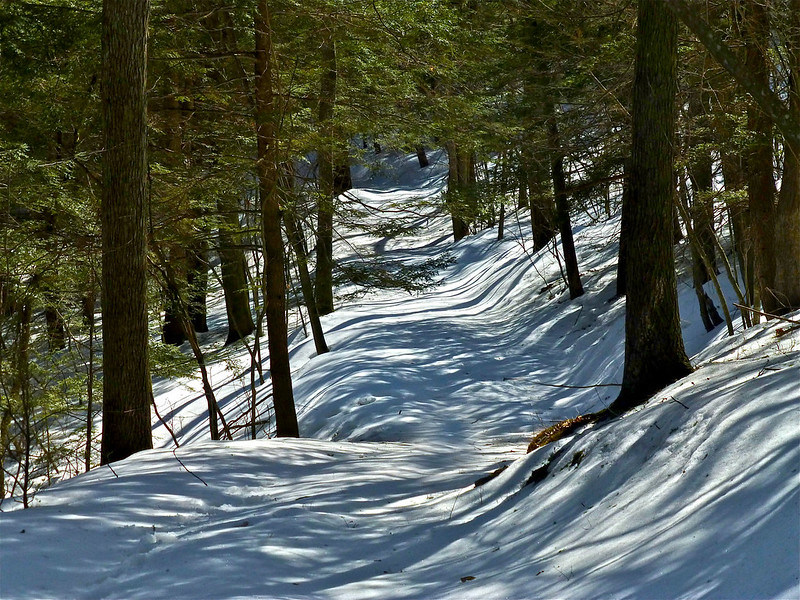Want to create an itinerary from this post?
Create a VisitWidget account and start creating your own sharable itineraries

Overlanding – that is, the practice of vehicle-based camping that focuses on the journey over the destination – has picked up popularity over the past several years, leading adventurous young souls out onto forested trains across the United States. While the practice has really gained traction out in the wide-open west, some overlanders have begun to turn their attention towards the forested hills and smooth beaches of Massachusetts.
If you’re planning on traveling to Massachusetts to take part in some overlanding with friends, you’ve come to the right place. This guide should provide you a quick primer on what you should be mindful of as you travel to the Bay State. From the locations of some great off-roading trails to the kinds of permits you need before setting out, this travel guide will help you hit the trails with the knowledge you need to fully enjoy the experience.

Tip #1 – Always Get Permission for Land Access
When folks start into overlanding, they often make one cardinal mistake that really harms their enjoyment of the activity. If you fail to attain proper permission to access your desired route with your vehicle, you could find yourself liable for damages, not to mention liable for entering private or protected property illegally.
As such, you should always research your intended route thoroughly before traveling to Massachusetts. Because the state is smaller than most, many trails cross over private property to some degree. While you could take your chances, your best bet is to contact the property owner in advance in order to provide them notice of your upcoming crossing.
If you are turned down for permission, do not proceed with your trip through that area. Doing so can open you to legal liability, especially if damage is done to the property. Your best bet is to recalculate your trip or seek out a publicly-available overlanding space, where permission is more widely available (often for a fee).

Caravan on the empty beach on the Cape Cod National Seashore on the Atlantic Ocean, USA
Tip #2 – Check Out Cape Cod National Seashore
If you are looking to avoid the hassle of attaining private overlanding permissions, consider looking into the various trails in and around Cape Cod National Seashore. While this entire park is not open to permit-less overlanding, some areas – including specific beaches and sandy trails – have been demarcated for access by SUVs and Jeeps.
In order to access the prime ORV corridor at Cape Cod National Seashore, you’ll need to attain a specialized permit found on the park’s website. In addition you’ll need to meet certain equipment requirements, include type and style of tires used while on the beach portions of the corridor.
So long as you are maintaining all of the park’s rules and regulations for activates and behaviors, you will get an unbeatable overlanding experience at Cape Cod National Seashore. From the warm sand beaches to the limitless ocean views, this is certainly one overland site you must check out while in Massachusetts.

RV and SUV at picnic area on the beach on north side of the Provincelands Cape Cod, Atlantic ocean view MA US.
Tip #3 – Always Put Conservation Before Recreation
Though it comes with the territory, you should always abide by all relevant Leave No Trace principles while overlanding in the Commonwealth of Massachusetts. This includes the need to stay on all marked trails while driving and only setting up camp in areas predetermined by the property owners. If you intend on setting a fire while in camp, be sure to attain supplementary permission to prevent harmful land damage.
Conservation practices should especially be practiced in areas where sensitive plants or animals are known to live. A prime example is in Cape Cod National Seashore’s ORV corridor, where piping plovers are known to nest. In areas such as this, be sure to drive with caution and consideration for the natural ecology.

Tip #4 – See All that New England has to Offer
While Massachusetts has a lot to offer to overlanders, don’t forget that it is just one state in the interconnected New England region. That is to say, you should also plan to visit some overlanding trails and campsites in the neighboring states of New Hampshire and Connecticut while you are traveling in the Northeast.
For example, New Hampshire features a fair number of Class 5 roads that are not maintained by civil authorities. So long as they are located in publicly accessible areas (or private, with proper permission), these are excellent trails to travel over with an appropriately-equipped SUV or Jeep.
Conclusion
All in all, Massachusetts and all of New England, should comfortably find a spot on your shortlist of upcoming overlanding destinations. With a fair mix of public facilities and regionally available ORV trails, you won’t be disappointed by all of the sights and sounds you experience as you journey around the Bay State.
So long as you maintain proper permitting protocols and Leave No Trace camping habits, you and every overlander that comes after you will be able to fully enjoy everything Massachusetts’ natural world has to offer.
TOPICS: Outdoor Adventure, Overlanding, Overlanding Massachusetts
Want to create an itinerary from this post?
Create a VisitWidget account and start creating your own sharable itineraries



